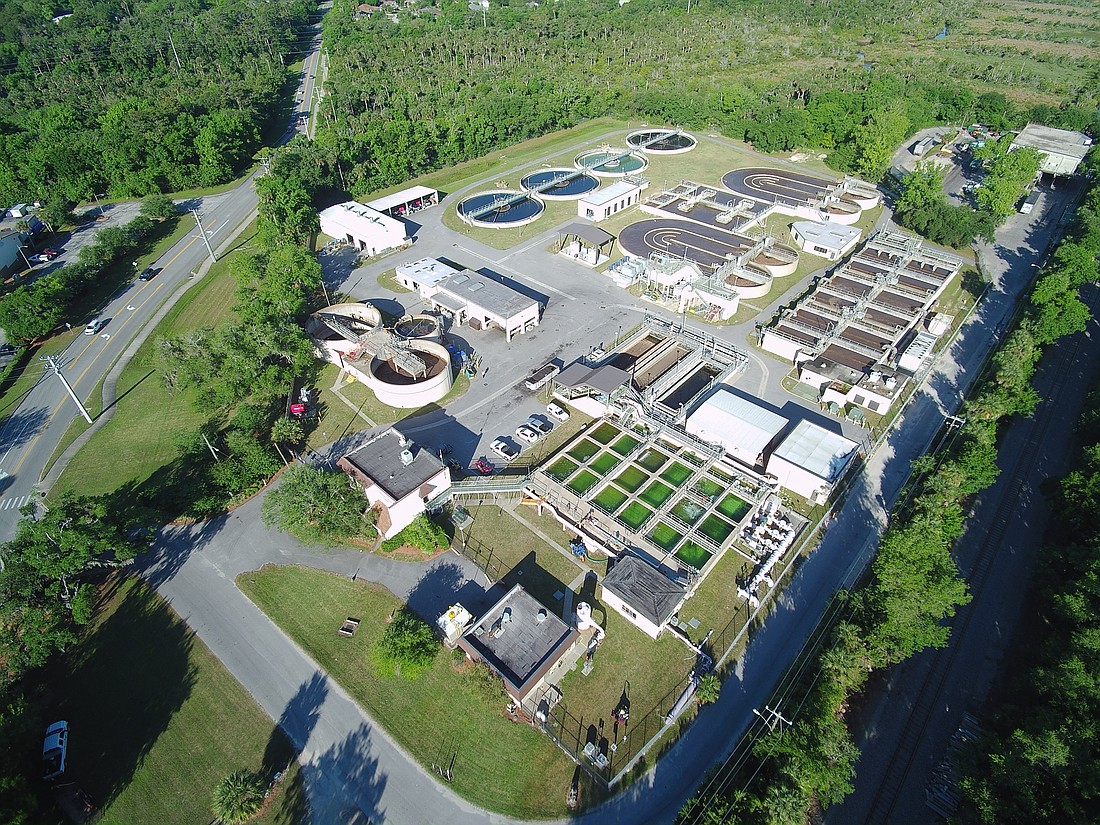- March 2, 2025

Should federal funds be used to get started on large water quality improvement projects, or should the city focus on fixing its current utility infrastructure?
With $4.9 million of American Rescue Plan Act funds included in the upcoming fiscal year's budget, the Ormond Beach City Commissioners were divided at their meeting on Tuesday, Aug. 4, on how to best use those dollars: Two commissioners wanted to put them toward large-scale water quality projects, and the rest wished to go along with city's staffs recommendation to use the funds toward infrastructure improvements to stave off a larger water and sewer rate increase.
The city of Ormond Beach is planning for a 1.7% rate increase, but the ARPA funds would help fund the remainder of utility infrastructure projects that would otherwise call for a 3.5% rate increase. But, Commissioners Dwight Selby and Rob Littleton felt that the ARPA funds would be best used for "extraordinary" water quality projects, such as looking into ways to reduce the amount of reuse water the city pumps into the Halifax River.
“I would like to see us use that money for that and not for what I would call ordinary and customary repairs and improvements to our existing water/wastewater system instead," said Selby, who along with Commissioner Susan Persis attended the meeting via Zoom for health-related reasons. Persis later revealed in the meeting that she had contracted COVID-19.
Mayor Bill Partington said that, without knowing how they would specifically use the ARPA funds, he felt like their responsibility was to spend them in a way to benefit the majority of residents, rather than pick "winners and losers" on certain projects. While cities want to eliminate all reuse pumped into the river if possible, the mayor said the issue didn't bother him.
“Honestly, reuse water is probably one of the cleanest things that goes into that river," Partington sad. "People don’t realize that the reuse water is treated to a level that’s almost drinkable — frankly, is drinkable, and so putting it into the Halifax improves the quality of the Halifax, as far as I’m concerned based on my tours of the plant and the understanding of the process of how we create reuse water that people use to sprinkle on their lawns and then whatever is left over, when it is left over, goes into the river.”
The city's reuse water is not potable and is meant for people to use for irrigation purposes only.
Looming on the horizon are also the effects of Senate Bill 64, which was signed by governor earlier this summer. Utility providers like the city of Ormond Beach who dispose of surface water discharge will need to submit a plan to the Department of Environmental Protection by Nov. 1 to eliminate all surface water discharges by Jan. 1, 2032. Ormond Beach Public Works Director said in an email that, when the city's storage is full and they have to discharge water into the river, it treats the effluent to reduce the amount of chlorine present. The water is also treated to reduce nutrient loads from nitrogen and phosphorus.
Discharge mainly occurs during the rainier periods, such as we've had recently, he explained.
"The city, aided by St. Johns River Water Management District cooperative funding grants have made substantial improvements in recent years to be ahead of the curve with this goal," Finley said. "Two significant projects recently completed are the construction of a new 2-million-gallon reclaimed water storage tank at our Breakaway Trails Utility site, and the expansion of our reclaimed water distribution system to the majority of the City’s South Peninsula."
Ormond Beach is currently permitted to pump 6 million gallons per day of surface water discharge into the river. According to the staff reports from the last two weeks (July 23 and July 30), the city has released 1.32 million gallons of surface water discharge into the river per day.
Selby disagreed with Partington's comments regarding "winners and losers."
“I don’t see how anybody is a loser by improving the environment, by improving the water quality in the intracoastal waterway," Selby said.
Littleton said the city's current plan to use the ARPA funds is pushing rate increases off into the future.
“I truly want to have a positive impact on the environment with this money, and something generational," Littleton said. "I think this money and how we spend it here can have that type of impact.”
Initially, the item failed 3-2 because Persis agreed with Selby and Littleton, but later changed her mind and vote, flipping it to pass 3-2, with only Littleton and Selby voting against the plan.
Selby had pulled the capital improvement plan item from the consent agenda due to this reason, along with some questions he had regarding a downtown water taxi line item, which was renamed to "downtown transportation alternatives" to further explore other options. The city is budgeting $50,000 toward this effort.